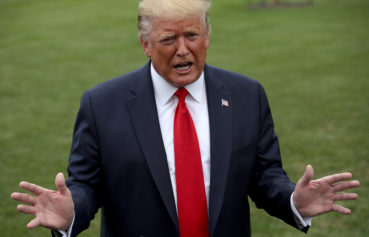BRIDGETOWN, Barbados — The founder of one of the United States’ top economic think tanks has urged Caribbean nations to cooperate regionally to tap into the Chinese tourism market, in a way that he believes can be a “game changer” for the region’s economic fortunes.
Dr. C. Fred Bergsten, founder and director emeritus of the widely respected Peterson Institute for International Economics in Washington, D.C., told an audience in Bridgetown on Wednesday evening that if several Caribbean countries offered “package trips,” which would allow island-hopping throughout the region in a convenient way, it could be key to capturing more of the booming Chinese tourism market, in particular.
He added that, while developing a single market and economy in the region, as has been proposed but never fully realized, the possibility of Caribbean nations cooperating more closely with each other to promote certain sectors in which they have obvious comparative advantage, such as tourism, is more feasible and could yield huge returns.
His comments echo some recently made by the Washington, D.C.-based Inter-American Development Bank, which suggested a study it undertook had shown that benefits would accrue to Caribbean nations, including The Bahamas, if they were to cooperate to subsidize and establish a “Brazil air bridge” that would launch direct service from the South American country into the region.
Once up and running, the collectively subsidized service could eventually become self-sustaining, the bank proposed, generating a significant new pool of arrivals from outside of traditional tourism markets.
Meanwhile, noting that the tourism industries of Caribbean countries had suffered in recent years as the sector’s global landscape has become more competitive and its regular source markets less economically dynamic, the IDB also pointed to China. The bank noted that a direct air link between The Bahamas and other Caribbean countries and the developing economic giant had the potential to “reset [The Bahamas’] course for future economic growth”.
Bergsten, currently the first visiting fellow at the Central Bank of Barbados, where he is undertaking a six-week sabbatical, made his comments about the Asian nation’s capacity to affect a tourism revolution in the Caribbean in response to a question from the audience at a Caribbean Economic Forum held at the Central Bank about how islands in the region can diversify as a means of achieving greater and more sustainable economic growth going forward.
The distinguished economist, a member of the U.S. President’s Advisory Committee on Trade Policy and Negotiations, who once coordinated U.S. foreign economic policy in the White House as assistant for international economic affairs to Henry Kissinger, said that rather than diversifying into a variety of different economic sectors, he sees the key to long-term sustainable growth for Caribbean countries as the ability to “do more of what you do best.”
“If you are a small economy, you really do have to emphasize those few things you do best and try to make sure you do them really well. And really well means on a globally competitive basis. I see enormous opportunities for Barbados and other small island economies in the Caribbean. Small is beautiful. The fact that you are small means that if you got only a very tiny share of such a huge market, it could be a game-changer for your economy.
“If the Caribbean countries can get together … to pool resources in a sector where you clearly do have comparative advantage … I do think that some of those principles are very important in developing your economic strategy.
“And so if you can develop targeted strategies for increasing airlift from China to the Caribbean via either Europe or the West Coast of the U.S.; if you could put together package deals where Chinese tourists could go for three days to Barbados, three days to Antigua, three days to St. Lucia, etc. — the same way Chinese tourists love to hop from Paris, to London, to Zurich, to Rome and see a few sites and go home and say they’ve done it — if you can put together what I think would be somewhat new creative devices of that type, you might be able to tap a huge new market,” said the economist.
Source: caribbeannewsnow.com


